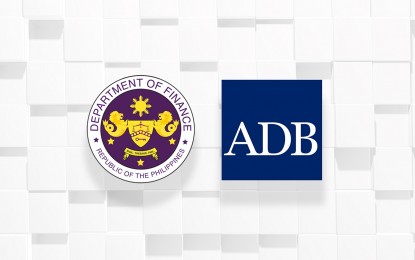
MANILA – The Philippines and the Asian Development Bank (ADB) signed Tuesday an agreement for a USD200-million loan on additional financing for the government’s efforts to provide unconditional emergency cash assistance to poor and vulnerable households that have been adversely affected by the quarantine measures imposed to contain the coronavirus disease 2019 (Covid-19) pandemic.
This loan accord is the second additional financing provided by the ADB under the Social Protection Support Project (SPSP), which supports the government's conditional cash transfer (CCT) program or the Pantawid Pamilyang Pilipino Program (4Ps) of the Department of Social Welfare and Development (DSWD).
Finance Secretary Carlos Dominguez III signed the loan agreement on behalf of the Philippine government, while ADB Country Director for the Philippines Kelly Bird signed it on behalf of the bank.
“We thank the ADB for its swift and continuing support for the Duterte administration's efforts to blunt the impact of the worldwide coronavirus outbreak on our people and the economy," Dominguez said.
"This SPSP loan will help the government achieve the No. 1 priority set by President Duterte in dealing with the Covid-19 pandemic, which is to save lives and extend a lifeline to millions of poor and low-income Filipinos who lost their incomes and livelihoods following the pandemic-driven work stoppage," he added.
For his part, ADB Vice President Ahmed Saeed said, “We commend the Philippine government for rolling out the emergency subsidy program aimed at helping poor and vulnerable Filipinos get through this health and economic crisis, as the pandemic curve is flattened. This USD200 million loan to assist the government in financing Covid-19 cash grants to poor households under the Pantawid Pamilyang Pilipino Program (4Ps) will help achieve this purpose.”
The SPSP aims to provide cash grants to beneficiary-families under the 4Ps covered by the emergency subsidies under Republic Act 11469 or the" Bayanihan To Heal As One Act".
This budget-support loan will help bridge the immediate financing requirements of the government's response to this coronavirus crisis through the distribution via cash cards of cash grants to beneficiaries of the 4Ps.
The loan for the project, which carries a maturity period of 29 years inclusive of an eight-year grace period, is expected to be disbursed by June this year.
Last April 24, the ADB and the Philippines signed another loan agreement that would let the Duterte administration access up to USD1.5 billion in budgetary support from the Manila-headquartered lender to augment funds for its stepped-up efforts to contain the global health crisis.
This loan for the Covid-19 Active Response and Expenditure Support (CARES) program is the largest budget support ever extended to the Philippines by the ADB, according to ADB President Masatsugu Asakawa.
The CARES program loan is under the ADB’s Countercyclical Support Facility Pandemic Response Option, which is a quick-disbursing budget-support facility to aid countries like the Philippines in mitigating the severe economic shocks caused by the Covid-19 pandemic and bankrolling measures to prevent the further spread of this highly contagious virus.
Asakawa said ADB’s financing for the CARES program loan “is part of a well-sequenced support package that will provide financial and technical advice to help the [Philippines] meet the challenges posed by a crisis that is wreaking havoc both globally and nationally.”
The ADB president has commended the Philippine government for “its strong leadership and decisive actions to halt the spread of Covid-19 and quickly implementing financial assistance packages to families and small businesses to address the economic downturn.”
The ADB was among the first multilateral development institutions to provide assistance to the Philippines’ Covid-19 response efforts with its delivery of a USD3-million grant for the government’s purchase of medical supplies for its front line health workers. (PR)
